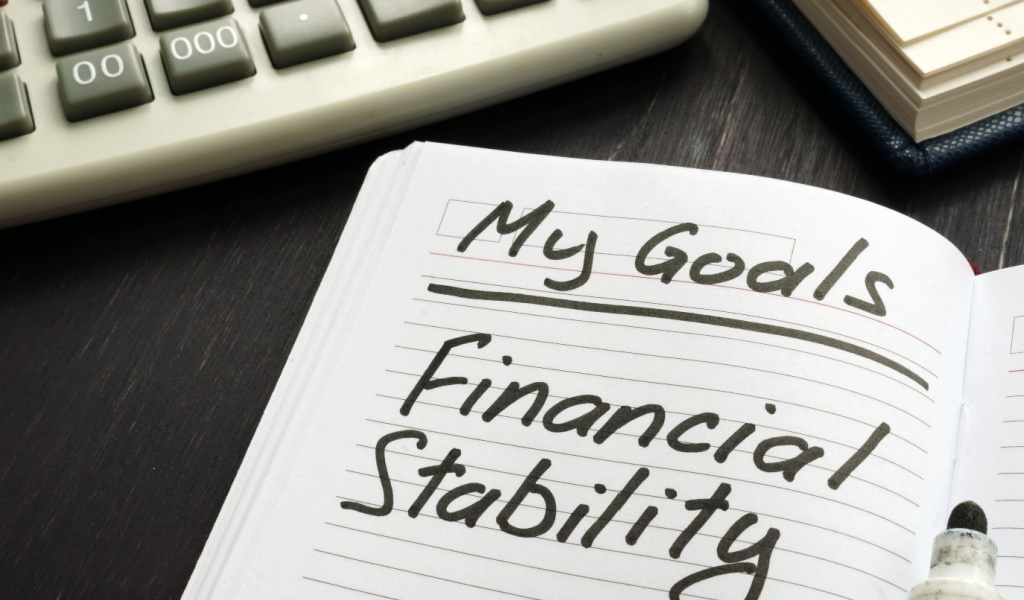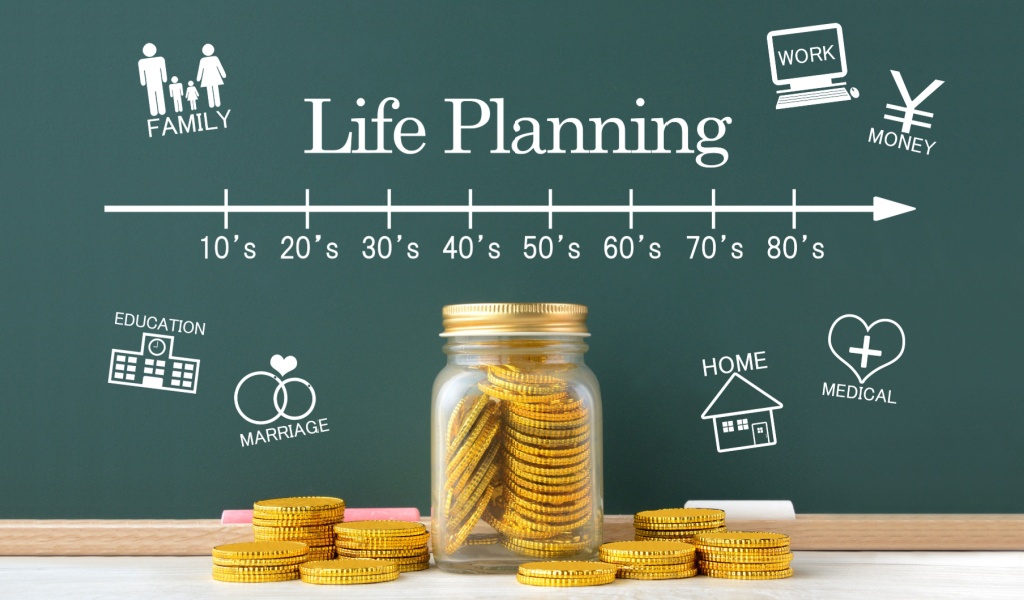Achieving the status of financial stability is a dream that most people have, but the finish line isn’t as straightforward as a line drawn on the sand. Financial stability might mean something different to people from different walks of life. But, generally, a person feels financially secure if they do all the right things with their money. So, if you’ve been wondering that yourself, here are a few signs that indicate that you are financially stable:

You Have Clear Financial Goals
Having clear financial goals for your future demonstrates that you’ve got a good grasp on money management. Financial goals can be short-term, such as paying off your mortgage, or long-term, like saving up for retirement. What’s important is that your goals are realistic and actionable!
Your Credit Score is Decent
Your credit score is one way to assess your financial health because it is calculated based on a positive credit history, on-time payments, and a good credit utilization ratio. Generally, credit scores from 580 to 669 are considered fair, 670 to 739 are considered good, 740 to 799 are considered very good, and 800 and up are considered excellent.
You Have a Budget & You Stick To It
A budget is the first and most essential step to financial stability. But anyone can make a budget – the key is sticking to it. When you make a budget, you learn about your money and how best to utilize it, and following the budget clearly exhibits that you understand the importance of money management and have solid monetary literacy.
You Have Little To No Debt
A person who is heavily in debt cannot be financially stable. Debt often accumulates more debt, which can plunge a person into financial devastation. If you have committed to paying down your debt and not accruing anymore, that is an excellent sign that you’re on the right track to financial security.
Your Bills Get Paid On Time
Financially secure people don’t lose sleep over worrying about finances. They are confident in their ability to manage their finances and take care of their expenses properly. If you can pay your bills on time, it’s a good indication that you are financially independent. Late payments trigger late fees, which can cause your debt to snowball, affecting your credit score and overall financial standing.
You Have an Emergency Fund
An emergency fund or “rainy day fund” is a crucial step toward financial stability. Life is unpredictable, and you can never know when you might be hit with a financially devastating event, such as a job loss, medical emergency, sudden home or car repairs, etc. If you already have an emergency fund of six months’ worth of expenses, it is a sign that your economic standing is solid.
You Have Made Saving a Habit
If you have made it a habit to set aside a portion of your income at the start of every month to put towards saving, that is an excellent display of sound financial knowledge. You may be saving up for an emergency fund or a significant expense that you expect in the future, or maybe you’re hoping to achieve a life goal, such as buying a home. Setting up automatic transfers on your bank account can help streamline the process.

You Have the Right Insurance
Along with an emergency fund, having the right insurance can help shield you from going broke in an unforeseen event. Some policies you must consider subscribing to (if you don’t already have them) include health, car, homeowners, renters, unemployment, and life insurance. Having the right coverage is as vital as having the proper insurance, so research and shop around before picking the insurance provider.
You Have Multiple Streams of Income
A financially literate person would know that relying on a single source of income is not wise because you are always only a couple of missed paychecks away from bankruptcy! A person can only achieve financial autonomy by diversifying their sources of income. They can do this by working freelance gigs, taking up a side hustle, or investing their money to earn passive income in addition to their primary source of income.
You’re Living Below Your Means
A person who spends more than they earn, or even spends everything they earn, can never achieve financial stability. Living paycheck to paycheck is a sure way to become financially vulnerable. If you are living below your means, i.e., spending far less than you earn, you are making good progress toward becoming financially protected. Making good use of the leftover funds will help you reach financial independence.
You’re Saving for Retirement
If you’ve already started saving for retirement, you’ve begun your journey towards financial freedom. This may be in the form of a 401(k), IRA, or other similar schemes. It’s never too early to start thinking about retirement. The earlier you start, the more compound interest you’ll acquire, and the more money you’ll have to enjoy the final chapter of your life!
You Own a Home
It’s safe to say that most people dream of owning a home one day, and there’s no better indication of financial stability than having already achieved that! Becoming a homeowner is a significant financial responsibility. It is only possible if you have a steady income, can accurately manage your finances, and set realistic short- and long-term goals.
Your Net Worth Is Growing Steadily
When you manage your finances efficiently by paying off debt, saving for retirement, diversifying your income, and investing your money, your net worth appreciates year after year. Steady and consistent growth in your net worth is an excellent indication that you are financially independent.
In Conclusion
If you can relate to some or most of the things in the list above, congratulations, you’re on the right track!
Becoming financially independent is challenging and requires significant time and effort. But there is no replacing the feeling of stability and satisfaction you get when you can say you are financially secure. Remember to keep journeying upward on this path by continuing to set goals and work towards them through educating yourself and taking actionable steps.
If you haven’t reached financial security yet, start by setting goals to achieve each of the things on the list above. Take small steps, set practical goals, and celebrate your triumphs. Most importantly, ensure you have the right mindset to continue on the right path!



